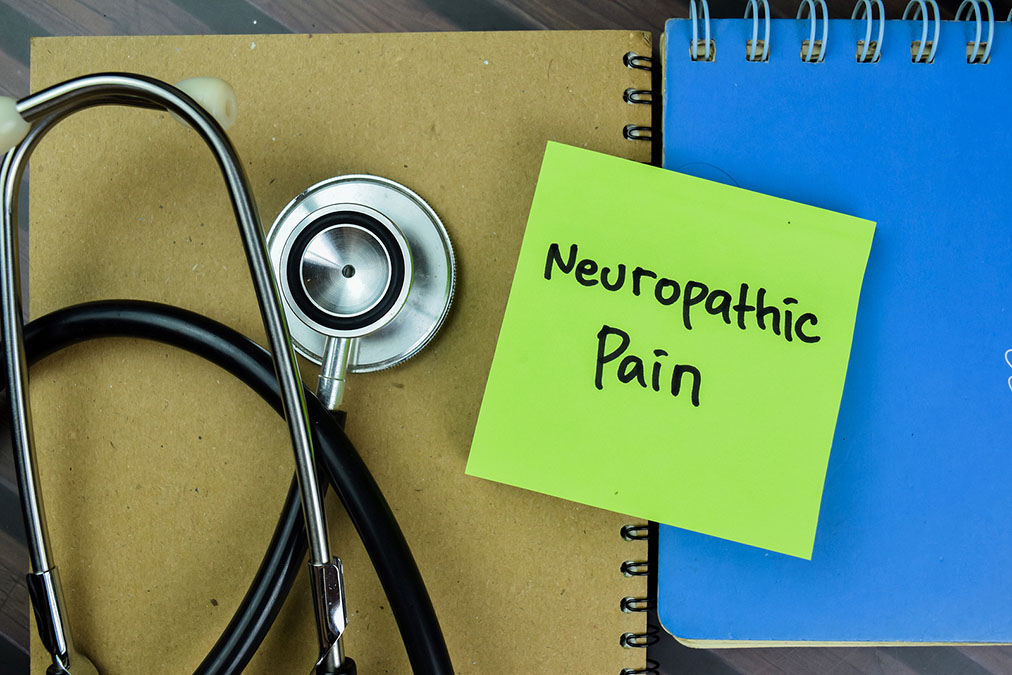 A new study published in Cureus reveals some devastating effects of neuropathy.
A new study published in Cureus reveals some devastating effects of neuropathy.
That’s the bad news, of course.
The good news is that the study revealed simple steps to drastically improve and even reverse neuropathy.
The scientists recruited 329 diabetes patients from Al-Ahsa, Saudi Arabia.
All the participants had to complete three questionnaires.
One was for participant information, including sociodemographic data, diabetic history, and other health conditions.
The second questionnaire recorded information regarding the presence and severity of diabetic neuropathy, as assessed subjectively by the participants.
The third questionnaire was a quality-of-life survey that examined participants’ level of life satisfaction, the impact of their diabetes, and their worries about diabetes.
They made the following discoveries:
-
1. 44.1% of the participants suffered from diabetic neuropathy.
2. The most common pain locations were their toes, fingers, soles of their feet, palms of their hands, and thighs.
3. Of those with neuropathy, 47.1% complained of pain that was sudden, unexplained, and unrelated to stress. 44.4% reported a burning pain on their skin, while 35.6% reported a loss of sensation.
4. Neuropathy was more common in divorced people than married or single people, more common in middle-aged and elderly people than in young people, and more common in less-educated people, smokers or former smokers, and people with other health conditions.
5. 73.1% of diabetics with diabetic neuropathy had low quality of life and were four times more likely to have a low quality of life than diabetics without neuropathy.
6. Participants with low quality of life complained of pain, low self-esteem, and difficulty with everyday activities, social life, and sleep.
While all of this is terribly negative, the upside was that better-educated people were less likely to have neuropathy and less likely to have a low quality of life.
Researchers have long known that people whose diabetes is under control are less likely to develop neuropathy.
It is reasonable to assume that the better-educated participants in the study were more likely than their less-educated peers were to collect information on controlling their diabetes and neuropathy. You can do the same.
Smoking and some other health-related conditions like obesity are also under your control.
Best of all, thousands of readers have completely rid themselves of neuropathy using the simple, natural steps explained here…
It’s actually quite easy to reverse type 2 diabetes using the three steps explained here…

 Overcoming IBD
Overcoming IBD Multiple Sclerosis
Multiple Sclerosis Banishing Bronchitis
Banishing Bronchitis Gum Disease Gone
Gum Disease Gone Overcoming Onychomycosis
Overcoming Onychomycosis Neuropathy No More
Neuropathy No More The Prostate Protocol
The Prostate Protocol Brain Booster
Brain Booster
 Ironbound
Ironbound
 Solution for Shingles
Solution for Shingles
 The Bone Density Solution
The Bone Density Solution
 The Ultimate Healing Protocol
The Ultimate Healing Protocol
 The Parkinson's Protocol
The Parkinson's Protocol
 The Chronic Kidney Disease Solution
The Chronic Kidney Disease Solution
 Overthrowing Anxiety
Overthrowing Anxiety The Fatty Liver Solution
The Fatty Liver Solution The Hypothyroidism Solution
The Hypothyroidism Solution
 The End of Gout
The End of Gout The Blood Pressure Program
The Blood Pressure Program
 The Oxigized Cholesterol Strategy
The Oxigized Cholesterol Strategy
 Stop Snoring And Sleep Apnea Program
Stop Snoring And Sleep Apnea Program
 The Arthritis Strategy
The Arthritis Strategy The Vertigo & Dizziness Program
The Vertigo & Dizziness Program The 3-Step Diabetes Strategy
The 3-Step Diabetes Strategy Hemorrhoids Healing Protocol
Hemorrhoids Healing Protocol The Erectile Dysfunction Master
The Erectile Dysfunction Master Weight Loss Breeze
Weight Loss Breeze The IBS Program
The IBS Program The Insomnia Program
The Insomnia Program The Migraine and Headache Program
The Migraine and Headache Program The Neck Pain Solution
The Neck Pain Solution The Menopause Solution
The Menopause Solution The Ejaculation Master
The Ejaculation Master The TMJ Solution
The TMJ Solution The Acid Reflux Solution
The Acid Reflux Solution The Fibromyalgia Solution
The Fibromyalgia Solution The Psoriasis Strategy
The Psoriasis Strategy